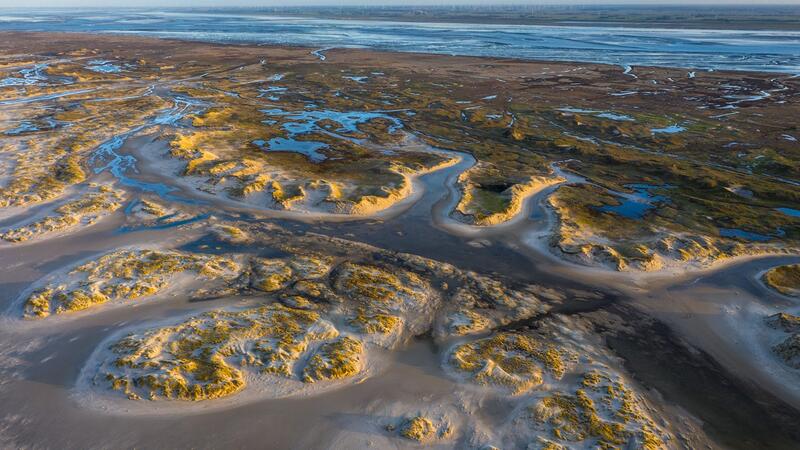Registration opened for online workshop on carbon sequestration

How does preserving the Outstanding Universal Value of the Wadden Sea contribute to the greenhouse gas reduction targets of the European Union? Carbon sequestration by typical Wadden Sea habitats like seagrass beds and salt marshes may perform a crucial ecosystem service in addressing the climate crisis. To investigate this at a trilateral level, per request by the Trilateral Governmental Council (see also SIMP), on 13 June the Common Wadden Sea Secretariat will hold an online workshop on “CO2 Sequestration in the Wadden Sea - State of knowledge and open questions”.
Carbon sequestration plays a vital role in mitigating climate change by reducing atmospheric CO₂ levels. Current research suggests that coastal wetlands, especially saltmarshes and seagrass beds, sequester carbon at much higher rate than forests and other terrestrial habitats and there is increasing interest in assessing the CO2 sequestration potential of different habitat types and quantifying their contribution to greenhouse gas reduction. The Wadden Sea World Heritage Site is one of the largest unbroken tidal systems in the world and includes several habitats which are known to sequester carbon at a substantial rate, such as saltmarshes and seagrass beds.
The Trilateral Wadden Sea Cooperation views exchange of information among experts, representing science, nature conservation or management, as key to better understand the current state of knowledge on CO2 sequestration in the Wadden Sea and assess the area’s potential in contributing to the reduction of greenhouse gases. This workshop is intended as first step to gain an overview on available information, while also providing opportunities for experts to discuss e.g. knowledge gaps, opportunities and/or potential impact of management.
>>> More information, a preliminary programme, and registration
